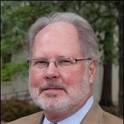| Present | Professor of History, University of South Carolina | |
|
|
||
Disciplines
Research Interests
Links
- Public History Program
- Historic Resources Associated with Segregation in Columbia, South Carolina
- Slavery and South Carolina College, 1801-1865: The Foundations of the University of South Carolina
- Prized Pieces of Land: The Impact of Reconstruction on African-American Land Ownership in Lower Richland County, South Carolina
- The Camden African-American Heritage Project
- University Neighborhood Historic District, Columbia, South Carolina
- Sites listed in the National Register of Historic Places
- National Council on Public History
- History@Work
- National Register of Historic Places
